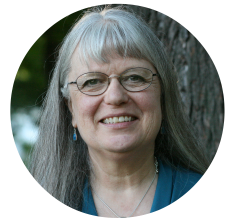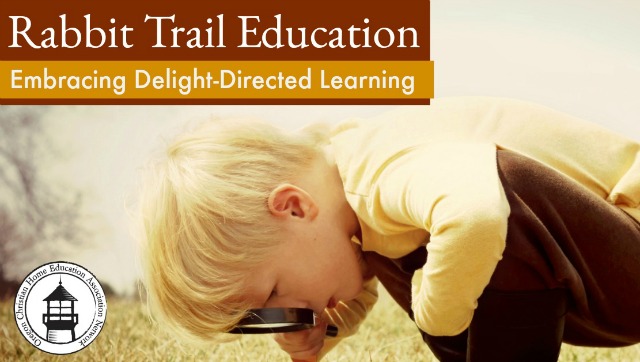When we begin homeschooling, most of us view homeschooling as one of three options for educating our children – we can choose public school, private school, or homeschool. And we choose homeschooling for a multitude of reasons as the best alternative for our family. It may be that our child needs more one-on-one attention, or that he is being bullied, or that we want to teach academics from a biblical perspective.
Whatever the reason we begin homeschooling, we spend a lot of time focusing on the “schoolish” aspects of education. I even went so far as to pack my children’s lunch and send them out the back door to return via the front door to be welcomed and taught by “Mrs. Karman.” When the bell rang, my children filed into their desks in the schoolroom.
That didn’t last long.

Not just an educational option . . .
In homeschool support group meetings, we talked about the difference between homeschool and home education. We realized that, after all, a real education wasn’t dependent on bringing all the trappings of school into the home.
Education was:
The bringing up, as of a child; instruction; formation of manner. Education comprehends all that series of instruction and discipline which is intended to enlighten the understanding, correct the temper, and form the manners and habits of youth, and fit them for usefulness in their future stations. To give children a good education in manners, arts and science, is important; to give them a religious education is indispensable; and an immense responsibility rests on parents and guardians who neglect these duties. (Webster’s 1828 Dictionary.)
That kind of education didn’t depend on my children calling me Mrs. Karman or spending 6 hours at the school desks each day. Homeschooling became home education.
We began to realize that our children were learning all the time. We could read street signs as we drove along. They could learn about the American Revolution cuddled up on the couch while Mom read Johnny Tremain. They could learn to multiply fractions by halving a recipe. Life itself became full of rich learning experiences. Home education became a lifestyle of learning.
As Dick and I learned about providential history for the first time along with our children, learning took on a whole different meaning when looked at from a biblical perspective. We became excited that we were free to teach those things compatible with a biblical worldview. We learned about God through our study of science. We studied reading because we wanted to be able to read God’s word. We studied writing, spelling and speaking so we could communicate the love of God to others. And we not only saw God’s hand in the academics, but we also began to see God’s hand in everything. Home education became a lifestyle of learning to think from a biblical worldview.
As we progressed through the stages of understanding the potential of homeschooling in our family’s life, I would still get bogged down with academics. The pressure of getting through the textbook or cranking out so many papers was relentless. And when I would focus on what I thought we should be accomplishing, I would get frustrated and impatient. But God was helping us realize our focus needed to be on the eternal souls of our family and not just the academics we needed to get through.
The lessons that were truly important were lessons on faithfulness, on commitment, on following through on what you said you would do, on loving God and others, and serving God and others. Home education became a lifestyle of discipleship.
But the relationship with our children didn’t end when they graduated from homeschool. We continue to disciple them as they become independent, as they marry and start families of their own, as they face the inevitable trials of life. They are still watching and learning from us. How do we handle disagreements and disputes at church? How are we honoring our mother and father as they age? How are we growing old gracefully? How do we handle trials and tribulations of life? They see how (and if) we apply the Bible to our everyday lives – even when they are not living at home. This, too, is discipling and it goes on for a lifetime. Praise God!
So homeschooling is not just another educational option,
. . . it is a lifetime of discipleship.
 Dorothy and her husband, Dick, are veteran homeschoolers and the founding members of the Oregon Christian Home Education Association Network (OCEANetwork). Both their children have graduated from homeschool high school and Dick and Dorothy are delighted grandparents of four grandsons. Even though they are no longer homeschooling, they still serve homeschoolers in Oregon by volunteering with OCEANetwork.
Dorothy and her husband, Dick, are veteran homeschoolers and the founding members of the Oregon Christian Home Education Association Network (OCEANetwork). Both their children have graduated from homeschool high school and Dick and Dorothy are delighted grandparents of four grandsons. Even though they are no longer homeschooling, they still serve homeschoolers in Oregon by volunteering with OCEANetwork.
